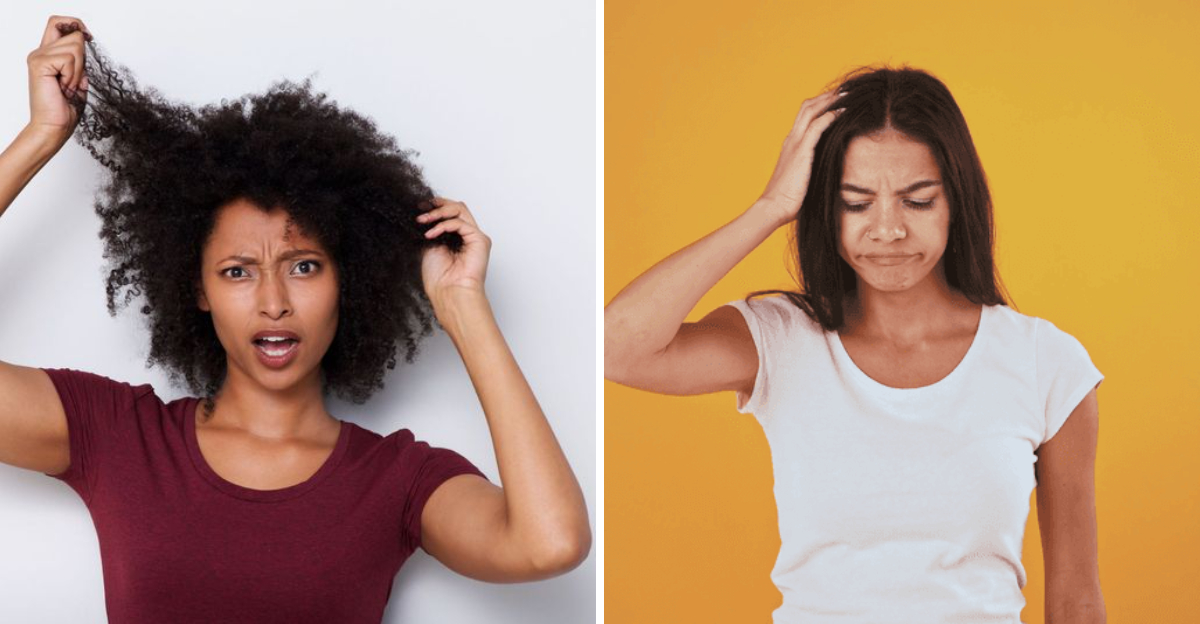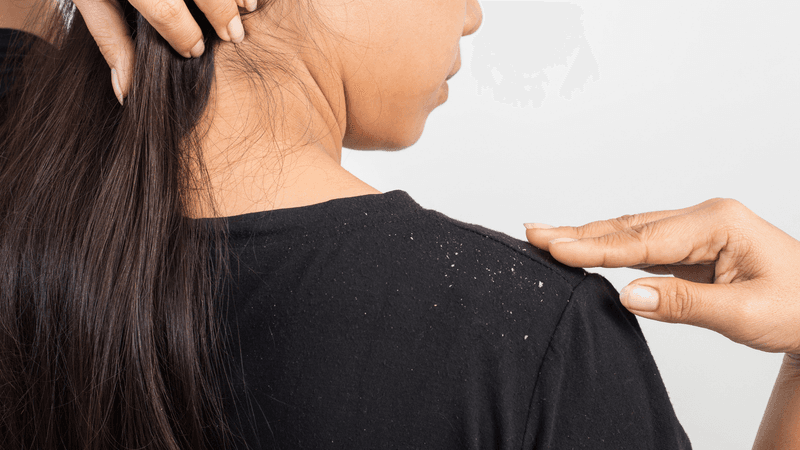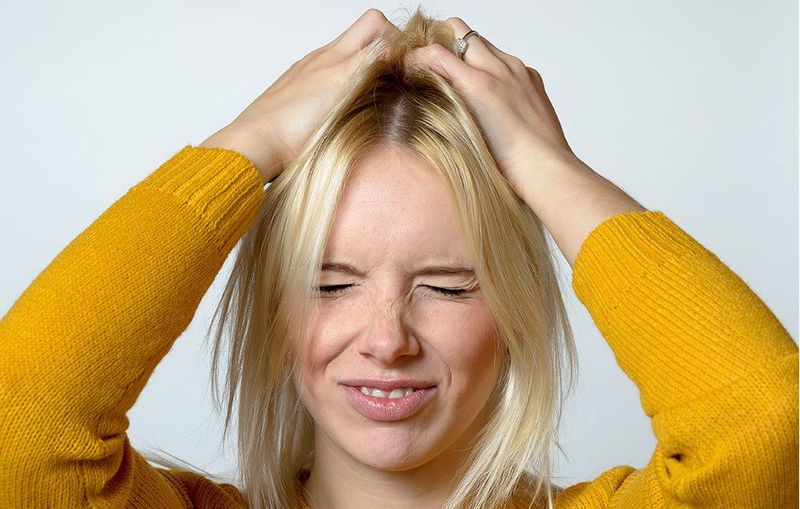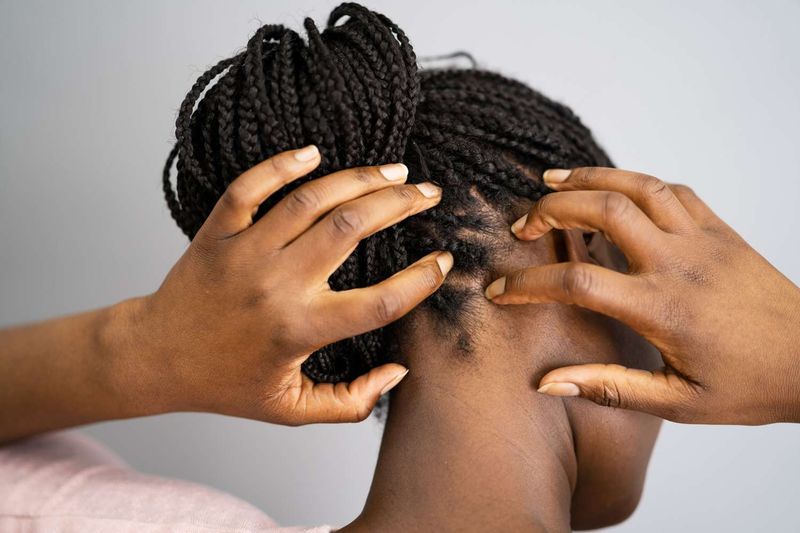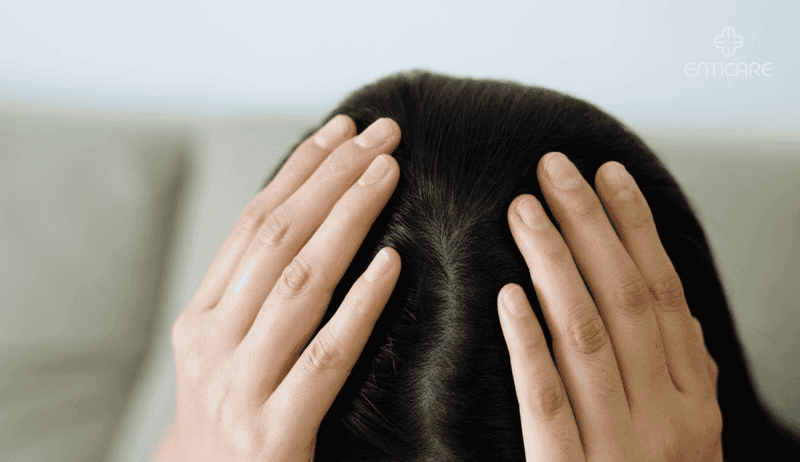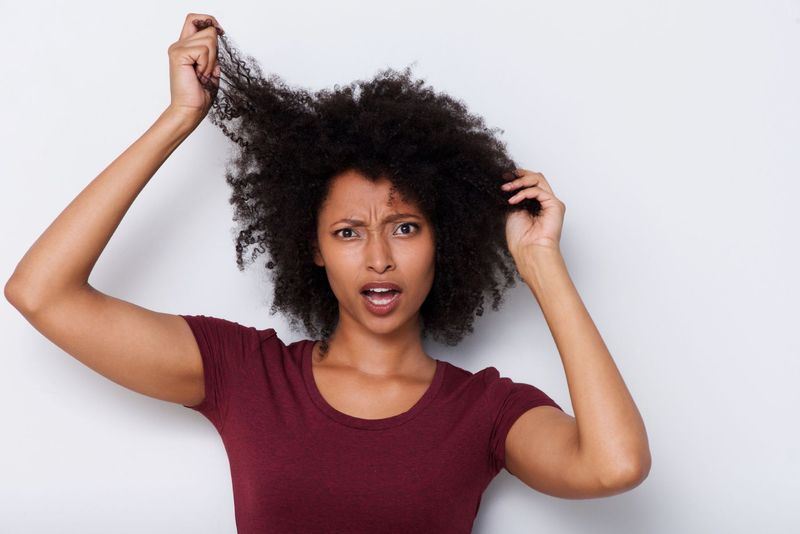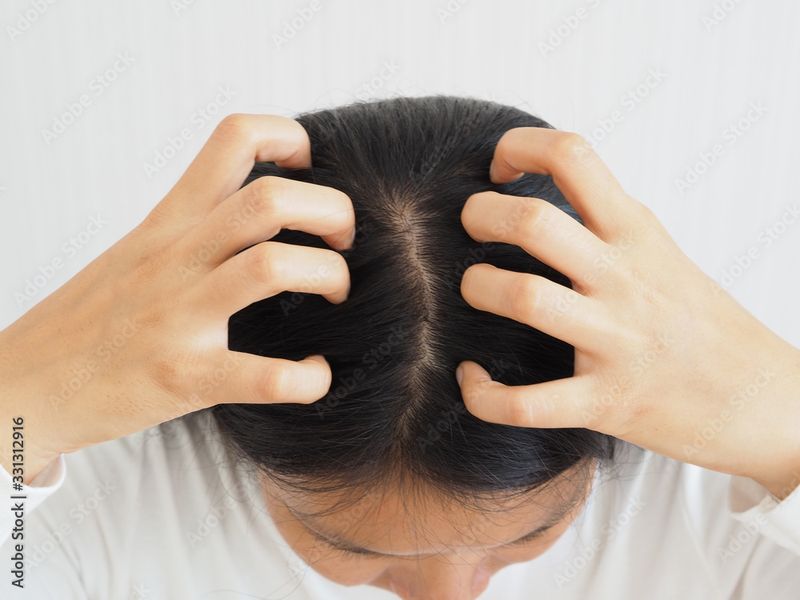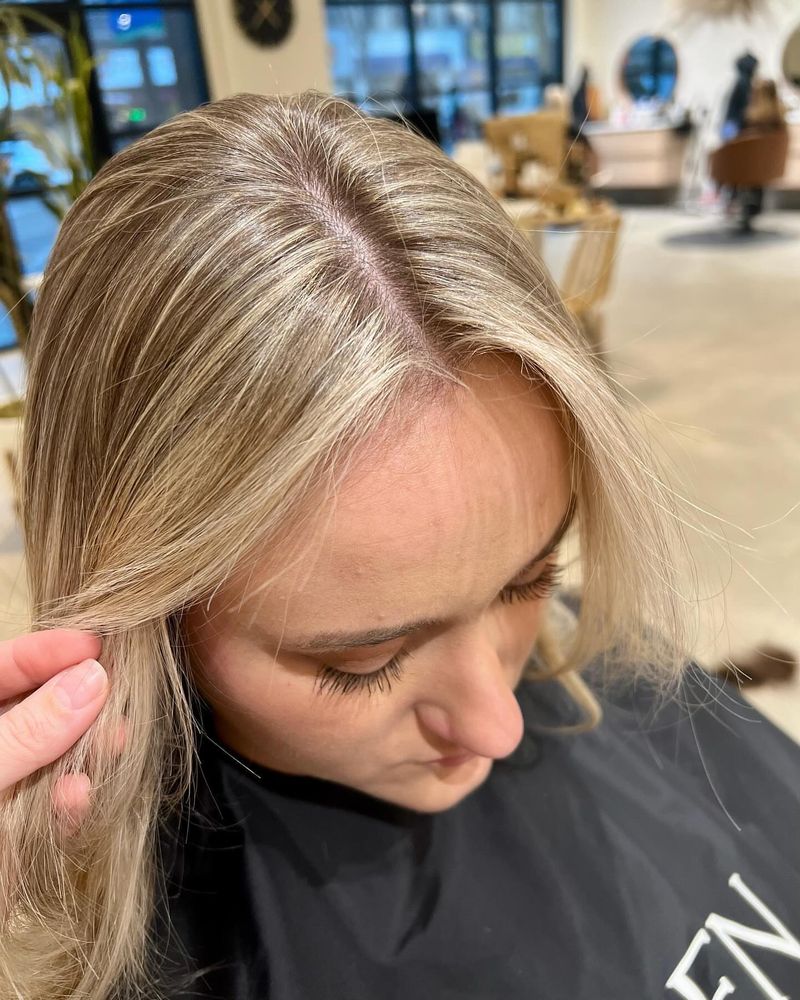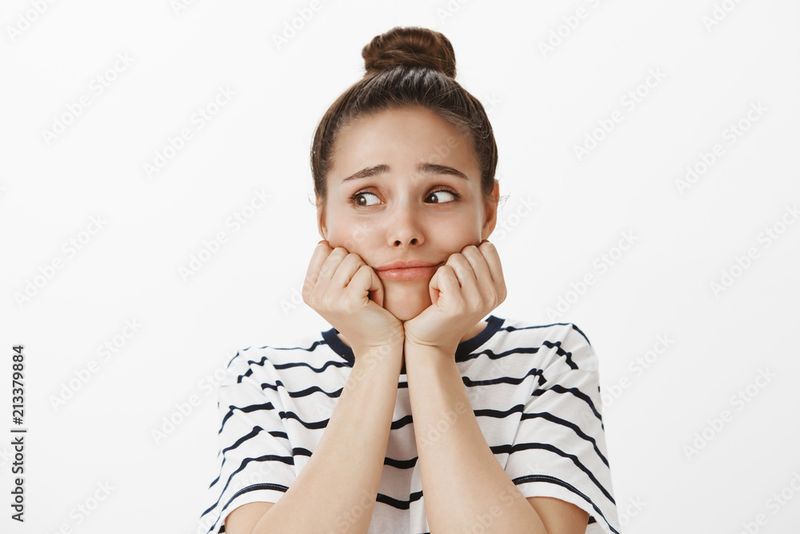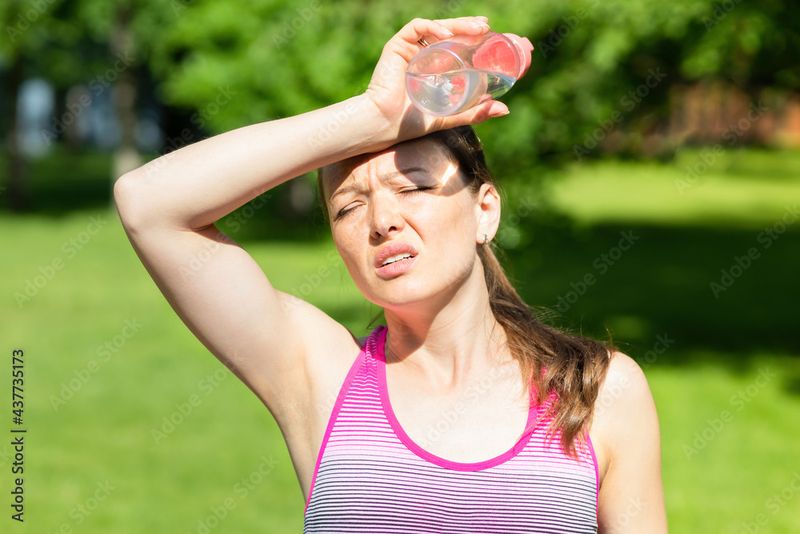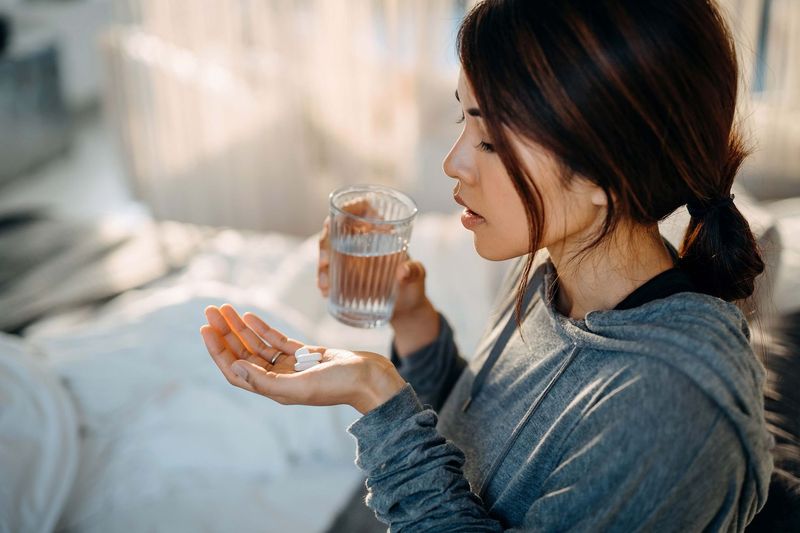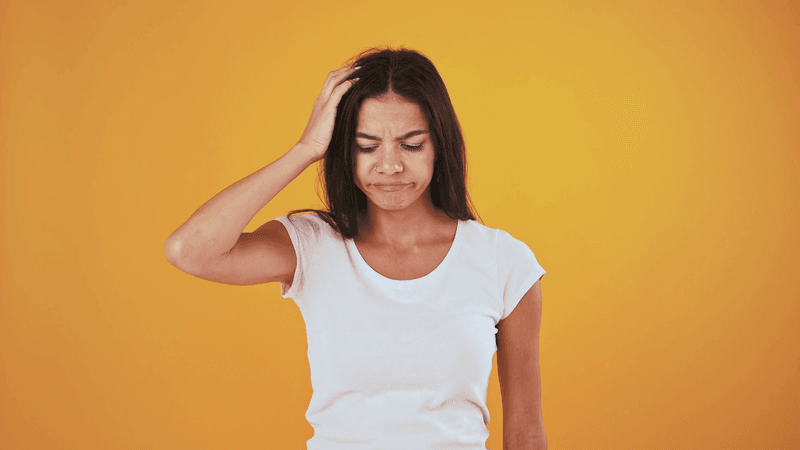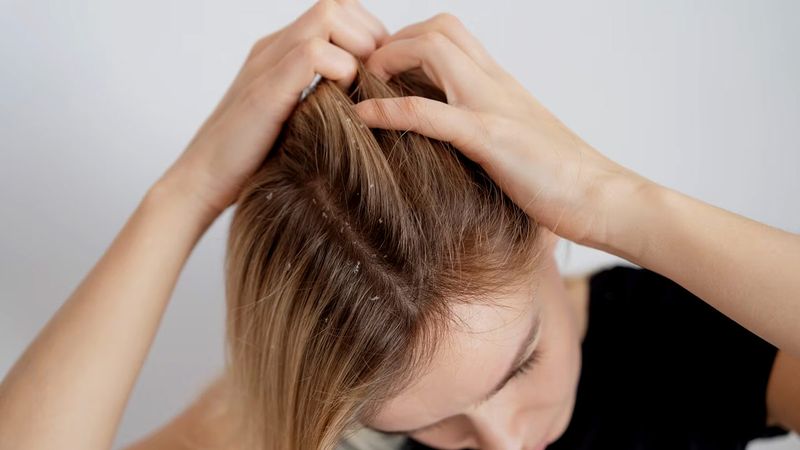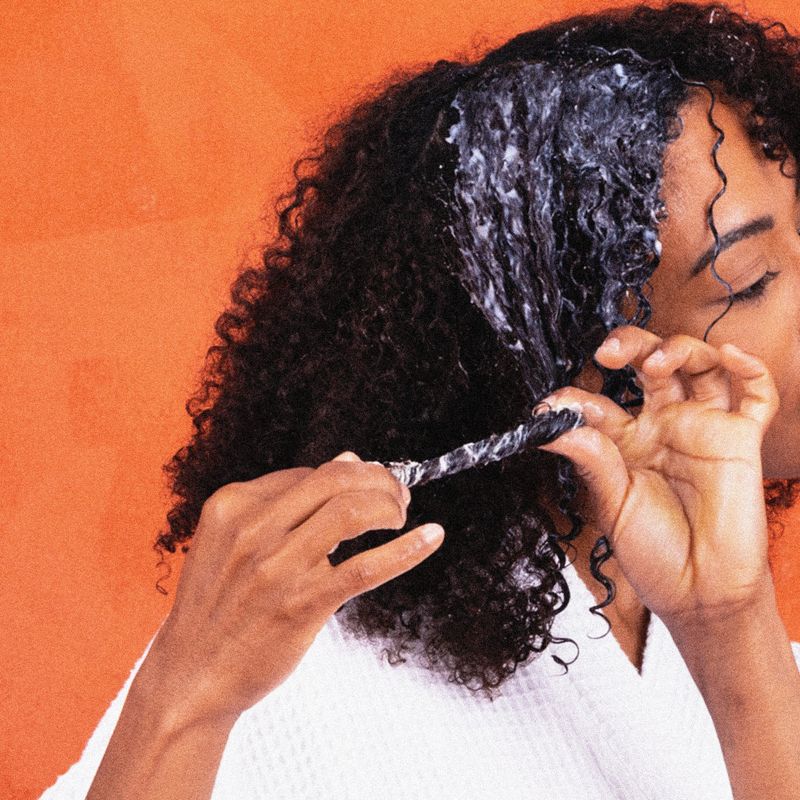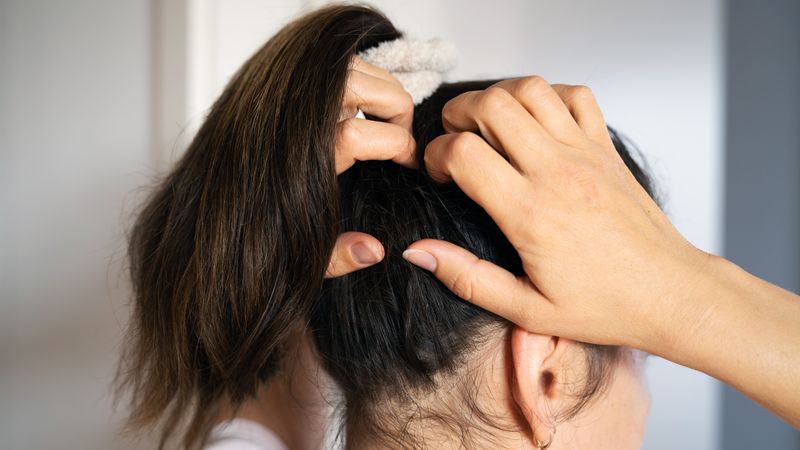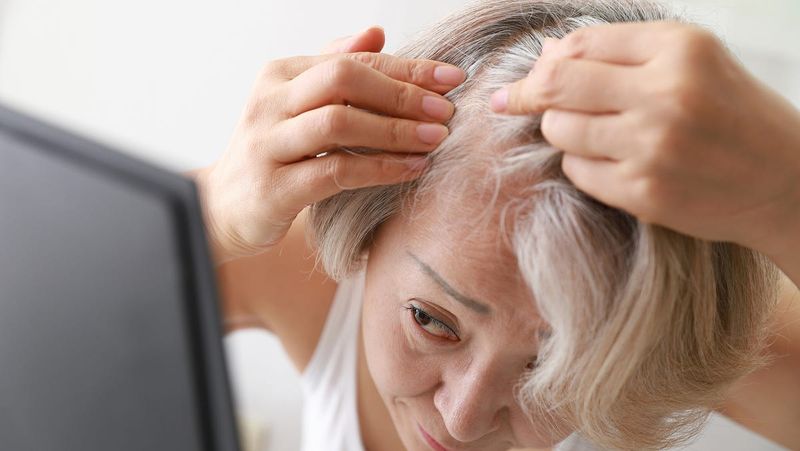An itchy scalp can turn a normal day into a constant battle against the urge to scratch. Beyond being uncomfortable, this persistent irritation can signal underlying issues that deserve attention. Understanding what’s causing your scalp discomfort is the first step toward finding relief and preventing future flare-ups.
1. Dandruff Dilemma
Those white flakes on your shoulders aren’t just embarrassing – they’re signs your scalp is shedding dead skin cells too quickly. Regular use of anti-dandruff shampoo containing zinc pyrithione or selenium sulfide can help control flaking.
Massage the product into your scalp and let it sit for a few minutes before rinsing thoroughly.
Related: -7 Straight-Hair Problems No One Talks About And 8 Easy Fixes That Shine
2. Sneaky Seborrheic Dermatitis
This condition goes beyond basic dandruff with redness, swelling, and stubborn yellow or white scales. Your scalp might feel greasy yet irritated simultaneously.
Medicated shampoos containing ketoconazole, coal tar, or salicylic acid can provide relief when used consistently. For severe cases, a dermatologist might prescribe stronger treatments.
3. Psoriasis Patches
Scalp psoriasis creates thick, silvery-scaled patches that can be incredibly itchy and uncomfortable. Unlike dandruff, these scales are tougher to remove and may cause bleeding if picked at.
Coal tar shampoos can slow cell growth, while salicylic acid helps remove scales. For more severe cases, prescription steroid solutions or oral medications might be necessary.
4. Allergy Alert
Your new shampoo or styling product might be the culprit behind your itchy scalp. Ingredients like fragrances, preservatives, and certain proteins can trigger contact dermatitis.
Try switching to fragrance-free, hypoallergenic hair products. Keeping a diary of products used can help identify the specific allergen causing your reaction.
5. Fungal Invasion
Ringworm of the scalp (tinea capitis) is actually a fungal infection, not a worm! It creates round, scaly patches where hair breaks off at the surface, leaving temporary bald spots.
This condition requires prescription oral antifungal medication, as topical treatments can’t penetrate hair follicles deeply enough. Don’t share brushes, combs, or hats during treatment.
6. Head Lice Hitchhikers
These tiny parasites cause intense itching, especially at night. You might feel something moving on your scalp – because something is! Lice and their eggs (nits) attach to hair shafts.
Over-the-counter medicated shampoos containing permethrin or pyrethrin can eliminate lice. Comb through wet hair with a fine-toothed nit comb to remove eggs after treatment.
7. Dryness Disaster
Cold weather, indoor heating, and hot showers can strip natural oils from your scalp, leading to dryness and itching. Your scalp might feel tight and flaky without the oily appearance of dandruff.
Moisturizing shampoos and occasional hot oil treatments can restore hydration. Try washing your hair less frequently and using cooler water when you shampoo.
8. Nervous Reactions
Stress and anxiety can trigger or worsen scalp itching through a complex mind-body connection. Your body releases chemicals during stress that can cause inflammation and sensitivity.
Stress-management techniques like meditation, regular exercise, and adequate sleep can help reduce symptoms. Some people find scalp massage not only relieves itching but also reduces stress.
9. Hormone Havoc
Hormonal fluctuations during pregnancy, menopause, or thyroid conditions can affect oil production in your scalp. This explains why your previously normal scalp suddenly feels itchy without other symptoms.
Gentle, pH-balanced shampoos can help manage symptoms until hormone levels stabilize. If itching persists alongside other symptoms, consult your doctor about possible thyroid issues.
10. Sun Scorched
Just like skin elsewhere, your scalp can get sunburned, especially along your part or if you have thinning hair. The resulting redness, peeling, and itching are your body’s response to UV damage.
Wear a hat in direct sunlight or use hair products containing SPF. Aloe vera gel can soothe an already burned scalp while it heals.
11. Medication Side Effects
Certain medications, including some antibiotics, antifungals, and blood pressure drugs, list scalp itching as a potential side effect. The itching may develop gradually after starting new medication.
Never stop prescribed medication without consulting your doctor. They might adjust your dosage or recommend a different drug if the itching becomes bothersome.
12. Nerve Neuropathy
Sometimes itching has nothing to do with your scalp’s condition but stems from nerve issues. Diabetes, shingles, or multiple sclerosis can cause nerve-related itching without visible symptoms.
This type of itching requires medical intervention rather than topical treatments. Your doctor might prescribe medications that target nerve pain and itching specifically.
13. Autoimmune Attacks
Conditions like lichen planopilaris or discoid lupus can cause your immune system to attack your scalp. These conditions often create distinctive patches with redness, scaling, and potential hair loss.
Early diagnosis is crucial to prevent permanent damage. Immunosuppressive medications or steroid injections may be necessary to control inflammation and preserve hair follicles.
14. Product Buildup
Hair styling products can accumulate on your scalp over time, especially if you don’t shampoo thoroughly. This buildup blocks follicles, traps moisture, and creates an ideal environment for irritation.
Clarifying shampoos used once weekly can remove residue effectively. Concentrate on massaging your scalp during washing rather than just running shampoo over your hair.
15. Hard Water Hardship
Mineral deposits from hard water can accumulate on your scalp, causing dryness and itching. You might notice your hair feels dull or that shampoo doesn’t lather well.
Installing a shower filter can reduce mineral content. Occasional rinses with diluted apple cider vinegar help dissolve mineral buildup and restore your scalp’s natural pH balance.
16. Aging Adjustments
As we age, our scalps produce less natural oil, potentially leading to dryness and itching. Medication use and changing hormone levels in older adults can compound these effects.
Gentler, sulfate-free cleansers and weekly deep conditioning treatments can compensate for reduced oil production. Scalp serums containing hyaluronic acid provide additional moisture without greasiness.

